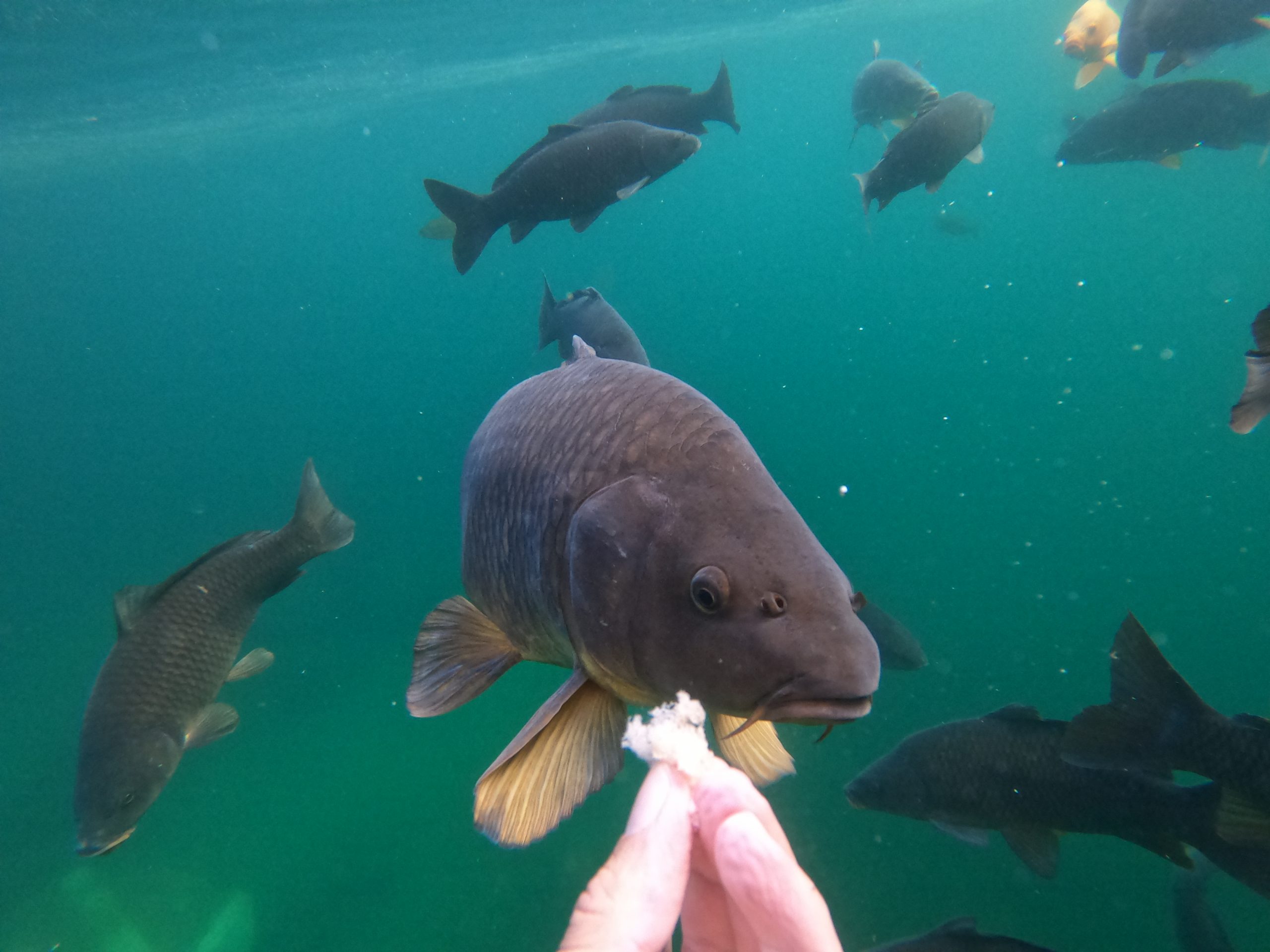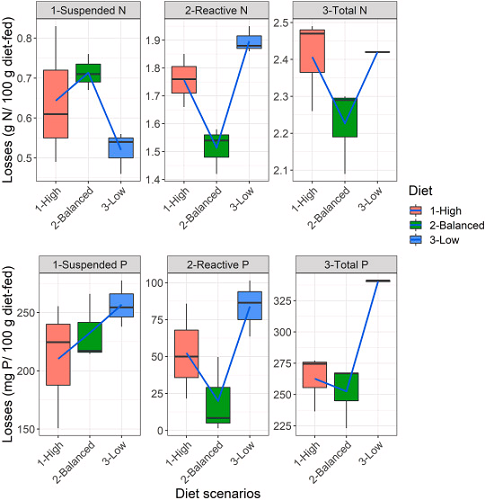
Thanks to a project supported by the GACR, Associate Professor Mraz’s research team is investigating how balanced fish nutrition can influence nutrient excretion and combat undesirable eutrophication in Central European carp ponds, thus helping to counteract negative environmental impacts.
Central European standing water bodies, the main part of them consisting of carp ponds, suffer from strong eutrophication (an excess of available nutrients, especially nitrogen and phosphorus). This eutrophication is often associated with the currently conducted feeding (farming) management in these fishponds, which does not consider the balanced nutritional needs of the growing fish. Our present study provides an understanding of how fish nutrition shapes nutrient excretion and eventually eutrophication. The study concludes that in spring and autumn, the status quo diets lead to inefficient resource use and indirectly to poor ecological conditions. Improved efficiency of ecosystem resource use and tackling eutrophication may be achieved by ‘bio-manipulating’ these fishponds towards a more balanced fish nutrition. The study calls for balanced pond feeds that optimize resource utilization efficiency and stimulate fish to better exploit natural food – in such a way that ecosystem services are maintained.
The authors feel future researchers could carry the baton forward with the novel understanding this article offers, especially the ecological management of these important pond ecosystems and the cleaner aquatic food production from the pondscapes of Central Europe.

A graphical summary of the presented concept. High = beginning of the vegetative season (lacking carbohydrate energy in ponds). Low = end of the vegetative season (lacking some indispensable amino acids in ponds). Balanced = short transition time (beginning-to-mid summer) when zooplankton-zoobenthos is sufficient and cereals are introduced in a pond. Suspended losses = losses through faeces (undigested nutrients). Reactive losses = losses through gills and urine (discarding of digested nutrients). Nutrient loading from fish stock to a pond ecosystem is at a minimum when the pond diet is balanced.
Detailed information is available in the original article: Roy, K., Vrba, J., Kajgrova, L. and Mraz, J., 2022. The concept of balanced fish nutrition in temperate European fishponds to tackle eutrophication. Journal of Cleaner Production 364: 132584. (Impact factor: 11.072, Article influence score: 1.376, IF/AIS quartile: Q1) https://doi.org/10.1016/j.jclepro.2022.132584
Written by: MSc. Koushik Roy, Ph.D., doc. Antonin Kouba, Ph.D. (Jihočeská univerzita v Českých Budějovicích, Fakulta rybářství a ochrany vod)
Cover photo courtesy: Ing. Tomas Kolarik (Jihočeská univerzita v Českých Budějovicích, Fakulta rybářství a ochrany vod)